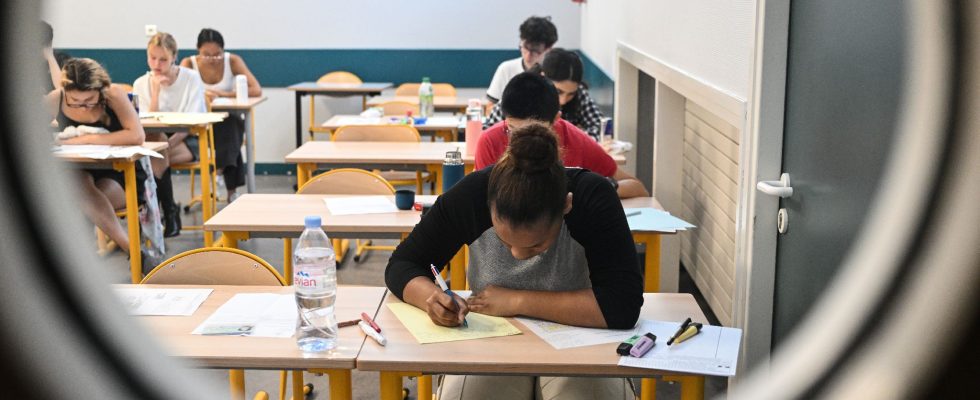The school year that is ending has made it possible to measure the impact of the last reform of high school and the baccalaureate, launched in 2018: early final exams, reduced school program, idle final year students during a last term without issue. These observations are added to the criticisms previously expressed: the multiplication of the choices of specialties has generated an organizational headache for high schools, a strategic headache for families, possible hiatuses with higher education, a loss of clarity of the examination as well as its national character by the introduction of continuous monitoring. This reform has, moreover, accentuated the differences between boys and girls by reducing the proportion of girls taking mathematics courses up to the baccalaureate, reducing their potential openings.
With its cascading consequences, the bac reform is now unanimously against it. However, it remains difficult to accurately measure its effects since no evaluation methodology has been integrated into its deployment. Obviously, none of this had been anticipated. How is it possible ? How could a handful of individuals have taken decisions with such serious consequences for the entire school system and its millions of students, in an extremely rushed timetable, without any precise analysis allowing them to foresee the consequences, and without any safeguards being able to moderate their proposals?
“The ministry did not consult its Scientific Council”
Wouldn’t we be touching the limits of a decision-making process consisting of appointing a small group of people who consult a multitude of stakeholders in order to a report and recommendations, before making decisions within the ministerial cabinet? Especially since the main expected answers were blown upstream of the process, since the main lines of the reform of the baccalaureate had been sketched out from 2017 by the candidate Macron.
Curiously, the Scientific Council for National Education (CSEN) which had just been created, was never consulted, neither by the cabinet of the ministry, nor by Pierre Mathiot (the copilot of the reform). One would have thought that before embarking on a project of such magnitude, it would have been essential to interview specialists in learning and evaluation of the school system, and more generally to submit the project to the crossfire of critics. of experts from all disciplines, in order to better detect and anticipate potential problems and correct things in time.
If the CSEN had been surveyed, it might not have been able to influence the reform project. But he could at least have recommended starting with a small-scale experiment and integrating an evaluation process, or even anticipating the consequences. And the Minister would still have made his decisions independently, but with the benefit of a scientific view of his project.
“Our leaders have not yet understood that making good decisions is extremely difficult”
A new reform of initial teacher training is now announced. What can reassure us that a catastrophe similar to that of the high school reform is not going to happen? Not much. The decision-making processes are always the same. The CSEN, which has a working group on teacher training, is still not consulted.
Unfortunately, our leaders have not yet integrated that, in the complex world of ours, making good decisions is extremely difficult and that there is almost no chance of achieving it by relying only on to partisan ideologies and by surveying only senior civil servants and professional representatives. There are, however, numerous international scientific studies that have rigorously evaluated the effects of various actions or public policies and which can therefore make it possible to inform relevant decision-making.
However, this work remains largely unknown to ministries, except for that of Health. Ideally, all departments should have a scientific board giving them access to useful knowledge and tools to assess their policies, and all should regularly question them. Without it, our leaders will continue to grope for decisions and bemoan the mistakes of their predecessors.
* Franck Ramus is Director of Research at the CNRS and Director of the “Cognitive Development and Pathology” team within the cognitive and psycholinguistic science laboratory of the Ecole Normale Supérieure in Paris.
